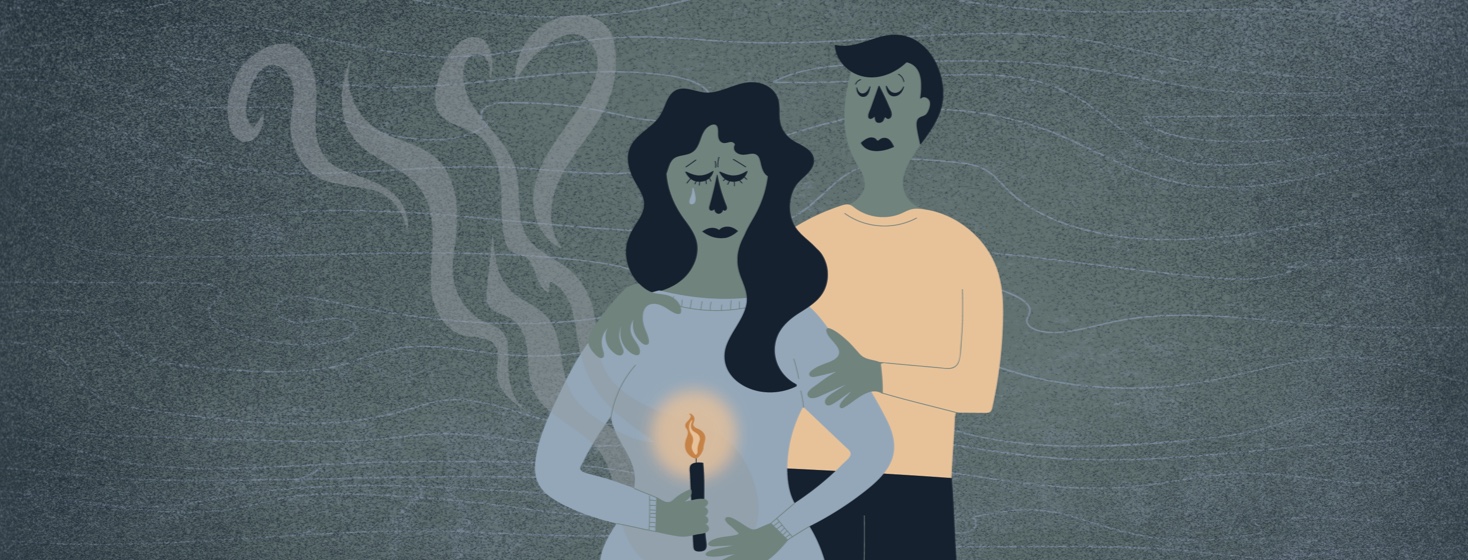How to Cope with a Miscarriage
One of the symptoms of endometriosis can be infertility, or struggling to conceive. Sadly, not all pregnancies are successful, so how do you deal with a miscarriage when your long-awaited and much-wanted pregnancy ends too soon?
My story
My first pregnancy ended in a miscarriage. I hadn’t been diagnosed with endometriosis yet, and we hadn’t struggled to conceive, but the miscarriage was nevertheless devastating. It happened early on in the pregnancy (before the 12th week), so the message I kept getting from friends, family and my doctor was that it’s “pretty common” to miscarry in the first three months. I’m sure this was meant as a comfort, but it had the opposite effect. I felt like I didn’t have a right to be sad about my loss.
Losing a pregnancy can be devastating
Losing a pregnancy, especially if you’ve struggled to conceive, is devastating. It doesn’t matter whether the miscarriage happened a week, a month, or three months after you received that positive test. So make time to grieve. Sometimes it’s helpful to have a little ceremony. There won’t be anything tangible to bury - after all, your baby was likely just a clump of cells when the miscarriage happened - but it’s helpful to have closure.
A pregnancy means joy, new life, and hope for the future. To have that snatched away is incredibly difficult. It might feel that the fetus you just lost was your only chance of having a baby. It’s good to acknowledge your sadness. Give it a place in your life, because trying to move on without having felt those emotions will only harm you in the long run.
Take time to heal
People - with good intentions - can be very callous about miscarriages. Especially people who haven’t had a miscarriage themselves. They will tell you that you can always get pregnant again, which is hard to hear if you already struggled to get pregnant once. But like with any loss, grief is part of the process to get over it. There’s no set journey for it though. Some women mourn for a few weeks and can move on, others take longer to heal emotionally. Take all the time you need and don’t feel guilty if you don’t bounce back right away.
Find support
I found it very helpful to talk to other women who had experienced a miscarriage. My friends and family are great, but after my miscarriage, they expected me to move on as soon as I was physically healed. Other women who had experienced the same loss were a great comfort to me. And especially if you have endometriosis and your doctor has warned you that conceiving might be difficult, it’s good to talk to others about this.
When I was diagnosed with endometriosis right after my miscarriage, my doctor told me that at least I didn’t have to worry about infertility as one of the symptoms of endometriosis. At the time, my feelings were still very raw, so I didn’t take it as a comfort. But he was right: getting pregnant once, even though it ended as a miscarriage, mean I could conceive. I clung to that hope to get me through the dark times.

Join the conversation